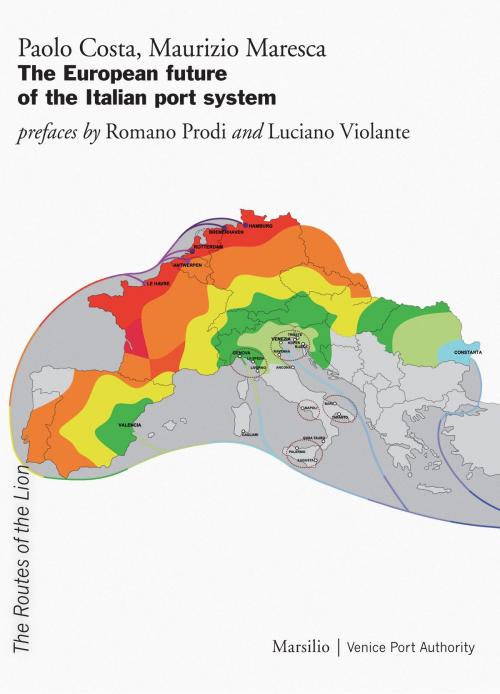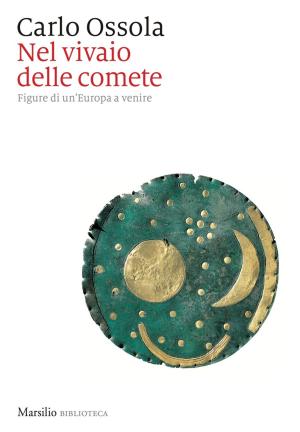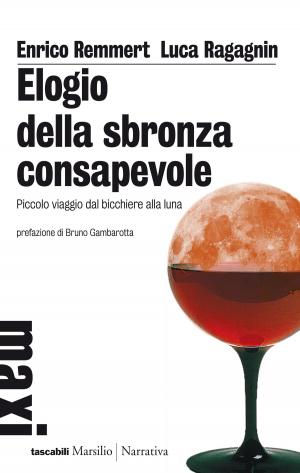The European future of the Italian port system
Business & Finance, Marketing & Sales, International, Nonfiction, Reference & Language, Transportation, Ships & Shipbuilding, Social & Cultural Studies, Political Science| Author: | Paolo Costa, Maurizio Maresca, Romano Prodi, Luciano Violante | ISBN: | 9788831737302 |
| Publisher: | Marsilio | Publication: | March 24, 2014 |
| Imprint: | Marsilio | Language: | English |
| Author: | Paolo Costa, Maurizio Maresca, Romano Prodi, Luciano Violante |
| ISBN: | 9788831737302 |
| Publisher: | Marsilio |
| Publication: | March 24, 2014 |
| Imprint: | Marsilio |
| Language: | English |
The future of Italian port activities is either European or nothing at all. Like every other ‘industry’ in our country, port activities are faced with the need to meet the challenges of the technological and organisational innovation of their production system and the globalisation of their markets. In the sea port sector such globalisation appears in the form of very large ships and very large ports, which tend to exclude from the transoceanic market any ports unable to adapt. The future is of ports located along the routes connecting the big world markets, but only if they are capable of handling big volumes of traffic and doing so with growing efficiency. The ports must be integrated into a broad logistical system based on port back-up facilities and interports able to consolidate/deconsolidate traffic directed along multi-modal corridors towards large contestable markets. None of the Italian ports is currently in a position to vie with the North Sea ports for world traffic to and from Europe. It will be possible to emerge from this inferior condition only by reordering the ports into a few multi-port systems, exploiting the ‘opportunity’ provided by the new strategy to construct the trans-European transport network, the Ten-T, by 2030. The condition is that Italy radically reforms its legal framework in a European direction: reducing and hierarchising its port authorities, opening up the port services and technical-nautical markets to greater competition, aligning the granting of concessions and port work to European law, and reforming the road and rail freight traffic system in a perspective of greater environmental sustainability. The advantages that may arise from this approach are exemplified in the case of the North Adriatic multi-port corridor. It is the most ‘European’ of all because of the cross-border functional need to see the Italian ports of Ravenna, Venice and Trieste working in a system of coopetition (cooperation and competition) with the Slovenian port of Koper and the Croatian port of Rijeka. The contribution made by the technological and organisational innovation of the Venice ‘call’ to achieving the common North Adriatic objectives is illustrated by a description of the project for the integrated offshore-onshore port now at an advanced stage of development.
The future of Italian port activities is either European or nothing at all. Like every other ‘industry’ in our country, port activities are faced with the need to meet the challenges of the technological and organisational innovation of their production system and the globalisation of their markets. In the sea port sector such globalisation appears in the form of very large ships and very large ports, which tend to exclude from the transoceanic market any ports unable to adapt. The future is of ports located along the routes connecting the big world markets, but only if they are capable of handling big volumes of traffic and doing so with growing efficiency. The ports must be integrated into a broad logistical system based on port back-up facilities and interports able to consolidate/deconsolidate traffic directed along multi-modal corridors towards large contestable markets. None of the Italian ports is currently in a position to vie with the North Sea ports for world traffic to and from Europe. It will be possible to emerge from this inferior condition only by reordering the ports into a few multi-port systems, exploiting the ‘opportunity’ provided by the new strategy to construct the trans-European transport network, the Ten-T, by 2030. The condition is that Italy radically reforms its legal framework in a European direction: reducing and hierarchising its port authorities, opening up the port services and technical-nautical markets to greater competition, aligning the granting of concessions and port work to European law, and reforming the road and rail freight traffic system in a perspective of greater environmental sustainability. The advantages that may arise from this approach are exemplified in the case of the North Adriatic multi-port corridor. It is the most ‘European’ of all because of the cross-border functional need to see the Italian ports of Ravenna, Venice and Trieste working in a system of coopetition (cooperation and competition) with the Slovenian port of Koper and the Croatian port of Rijeka. The contribution made by the technological and organisational innovation of the Venice ‘call’ to achieving the common North Adriatic objectives is illustrated by a description of the project for the integrated offshore-onshore port now at an advanced stage of development.















